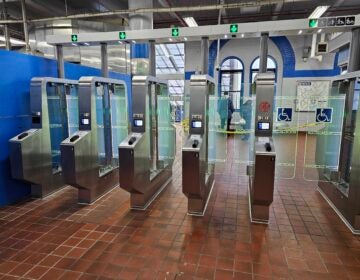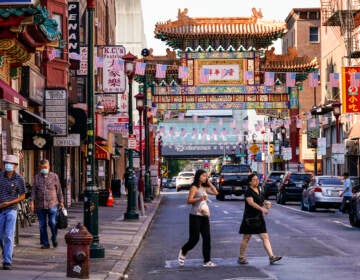Marc Gobé speaks about emotional branding, cities and advertising
By Frances V. Ryan
For SCRUB, the Public Voice for Public Space
Earlier this summer, nearly 800 business leaders from 19 countries attended the Sustainable Brands Conference in Monterey, California. The global sustainable brands community is made up of sustainability, brand, and design professionals from global companies, socially responsible start-ups, investors, NGOs and government officials as well as service and solutions providers. The annual conference has become the locus for individuals and companies around the world that are committed to leveraging sustainable innovation as a driver of business and brand value.
One of the prominent speakers at the conference was Marc Gobé. Gobé co-founded Desgrippes Gobé, one of the world’s top five global branding firms when the company was sold in 2008. Gobé is considered a pioneer in combining the disciplines of brand strategy, human factor research, product and graphic design and architecture to emotionally engage consumers along different points of the brand experience.
His client representation has included Coca-Cola, Air France, AOL, Estée Lauder, Banana Republic, Victoria’s Secret, IBM, Johnson & Johnson, Hy-Vee, Samsung and others. In 2008 Gobé created Emotional Branding LLC, an experimental think tank, as both a branding best practice standard and visionary branding philosophy. He believes that his clients are best served by fostering their brand’s emotional relationship with those consumers who care about their impact on the world. As an advertising professional, Gobé is concerned about the impact of outdoor advertising on brands.
He discussed how the dominating presence of billboards injures the goodwill for the brands that they advertise. He is particularly focused on the alienating effect of outdoor advertising on cities and their residents. According to Gobé, 75% of the world’s population will be living in cities by 2050. As such, companies must understand how urban dwellers feel about their cities and to not risk their wrath by offending their sense of place.
Gobé writes “Excess advertising in the form of billboards have become permanent inhabitants of our public spaces and have gone so far in some cases of obscuring even the identities of entire cities…As urban centers grow and the city population density intensifies, this battle to preserve a citizen’s right to a beautiful, non-commercialized environment becomes even more important and precious…Brands are being caught in this cross-fire between media and communication vehicles. Their very presence as outdoor advertising has made them the scapegoat of this often illegal form of pollution. Brands become immediately implicated just by their association and perceived support of such media practices.
The outdoor media companies themselves have managed to remain behind the scenes and unscathed by the public back-lash. At the end of the day, it is the brands themselves who end-up shouldering the responsibility as well as the brunt of citizen frustration.” Thus, businesses that wish to succeed must be aware of the downside of outdoor advertising. In particular, the tendency of the billboard industry not to take “no” for an answer, illegally erecting billboards and removing trees that obscure the view to those billboards impacts the public’s opinion of the brands advertised, more than of the billboard companies themselves.
Gobé concluded his talk by calling on brands to give citizens their cities back, by following the lead of cities like Sao Paulo and Houston; cities once plagued by billboards, and now home to thriving economies, prestigious companies and tremendous increases in population and retail sales. His prescription for generating goodwill for brands: Don’t support illegal billboards; don’t let the public associate your brand with flouting the law; don’t work with billboard companies that cut trees to clear views of their signs and don’t sponsor billboard companies that use the court system to support illegal billboards.
These practices solidify the public’s sense of billboards as pollution. Gobé believes he sees a strong grassroots movement of city residents all over the world who wish to take control of their physical and mental environment and reconnect with simple beauty while pushing back on that which de-humanizes and ultimately what homogenize us. Brands that respond to this desire will be more successful than those that demand our forced attention.
Gobé is the author of three books, Emotional Branding published in 2001 and updated in 2010, Citizen Brand on corporate social responsibility and Brandjam on the power of design innovation based on collaboration. He is also producing a documentary on visual pollution to be released in 2012. For more information on Marc Gobé please see www.Emotionalbranding.com and Twitter @mgobe For more information on SCRUB please see www.publicvoiceforpublicspace.org or call 215-731-1775
WHYY is your source for fact-based, in-depth journalism and information. As a nonprofit organization, we rely on financial support from readers like you. Please give today.






